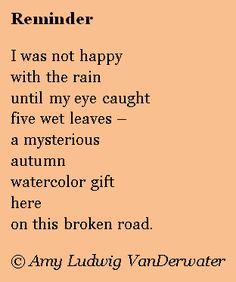Poem Examples

Poetry, with its ability to encapsulate emotions, thoughts, and experiences within the confines of rhythmic lines and vivid imagery, has remained a profound expression of human creativity throughout the ages. From the ancient epics of Homer to the contemporary verses of modern poets, the art form continues to captivate minds and hearts across cultures and generations. In this anthology of timeless verses, we delve into the diverse landscape of poetry, exploring its myriad forms and showcasing exemplary works that have left an indelible mark on literary history.
Table of Contents
ToggleEpic Poetry:
Epic poetry stands as a testament to the enduring power of storytelling. Epic poems such as Homer’s “The Iliad” and “The Odyssey” have resonated through the centuries, recounting tales of heroism, love, and adventure. These monumental works, characterized by their grand scope and elevated language, transport readers to distant lands and epochs, inviting them to ponder the complexities of the human condition.
Sonnet:
The sonnet, a compact yet potent form of verse, has been embraced by poets across the ages. Shakespeare’s sonnets, with their exquisite craftsmanship and profound insights into love and mortality, remain unparalleled in their beauty and emotional depth. From the tender intimacy of Sonnet 18 (“Shall I compare thee to a summer’s day?”) to the existential contemplation of Sonnet 73 (“That time of year thou mayst in me behold”), Shakespeare’s sonnets continue to enchant and inspire readers worldwide.
Haiku:
Haiku, originating from Japan, exemplifies the art of brevity and suggestion. With its strict structure of three lines and seventeen syllables, haiku captures fleeting moments of beauty and insight with remarkable economy. Matsuo Basho, considered a master of the form, crafted haiku that evoke the natural world in all its splendor and transience. In his famous frog haiku, Basho writes:
“An old silent pond… A frog jumps into the pond— Splash! Silence again.”
In just seventeen syllables, Basho conveys the essence of a serene moment interrupted by the sudden intrusion of life—a testament to the power of simplicity in poetry.
Free Verse:
In contrast to the formal constraints of traditional poetic forms, free verse offers poets unparalleled freedom of expression. Walt Whitman, often hailed as the father of free verse, revolutionized poetry with his seminal work “Leaves of Grass.” Whitman’s expansive, lyrical verses celebrate the diversity and vitality of the American experience, weaving together strands of democracy, spirituality, and sensualism in a tapestry of poetic innovation. In “Song of Myself,” Whitman declares:
“I celebrate myself, and sing myself, And what I assume you shall assume, For every atom belonging to me as good belongs to you.”
Through his embrace of the colloquial language and cadences of everyday speech, Whitman broke free from the conventions of his time, paving the way for future generations of poets to explore new realms of poetic possibility.
Concrete Poetry:
Concrete poetry merges visual and verbal elements to create works of art that engage both the eye and the mind. By arranging words and letters on the page in innovative ways, concrete poets imbue their creations with layers of meaning and symbolism. Guillaume Apollinaire’s “Calligrammes,” for instance, experiment with typography and spatial arrangement to evoke the dynamism and chaos of modern urban life. In “Il Pleut” (“It Rains”), Apollinaire writes:
“Il pleut des voix de femmes comme si elles étaient mortes même dans le souvenir.”
Here, the words cascade down the page like raindrops, blurring the boundaries between language and image, sound and meaning.
Conclusion:
From the epic grandeur of ancient mythology to the avant-garde experiments of contemporary poets, the world of poetry is as vast and varied as the human imagination itself. Across cultures and centuries, poets have harnessed the power of language to express the ineffable, to illuminate the hidden corners of existence, and to forge connections that transcend time and space. In this anthology of timeless verses, we have glimpsed but a fraction of the boundless riches that poetry has to offer. Yet, in each poem, we find echoes of our own joys and sorrows, hopes and fears—a reminder of the enduring relevance and resonance of the poetic impulse in the human experience.





